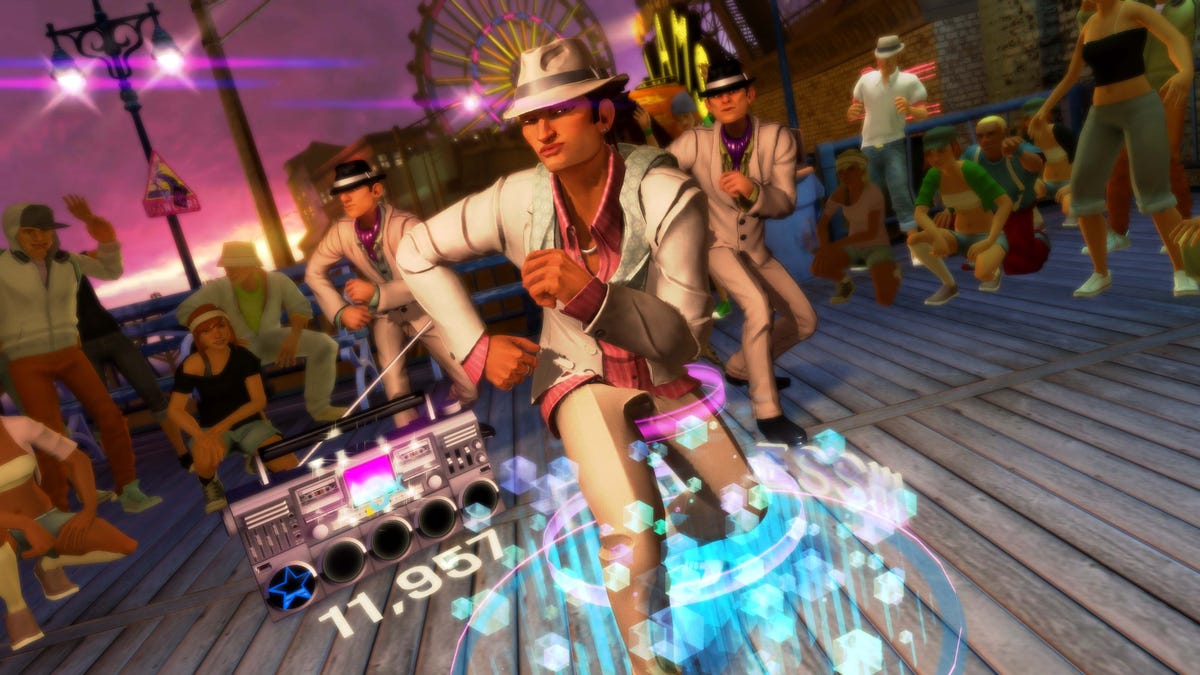Kinect's Dance Central: The Auto-Tune of dancing
How did Harmonix's upcoming dance game reel in a highly reticent editor? By making him feel like he was a better dancer than he is.

I'll be the first to admit I've been less than excited about the 2010 crop of motion-controlled gaming hardware from Sony and Microsoft. Particularly in the case of the Kinect, the upcoming motion-control camera peripheral for the Xbox 360, interacting with a motorized camera presents ways of physically humiliating yourself that make the Nintendo Wii seem positively tame.
An invitation to try out Dance Central, the hopeful killer app from MTV Games and Harmonix for the Kinect's November launch, didn't encourage me. The previous session was finishing, and true to my expectation, members of the press were hopping up and down to club beats, looking ridiculous and somewhat uncoordinated. I am not a dancer, nor do I dream of being one, and I was expecting this to be a painful demo.
When we dance in front of a camera, it's like an invitation to be shy. Who's really up for this type of exhibition? I know the Kinect is watching me, and I certainly don't want to see myself onscreen. I also don't want to fail out at a dance game. Games like Dance Dance Revolution are unforgiving with misses, and you know it when you don't land on the right part of the mat.
I was surprised to discover two things: in a head-to-head dance-off, I came close to unseating the PR demonstrator who clearly had physical and experiential advantages over me. And, I actually had fun and felt encouraged. How did this happen?
I equate it to Auto-Tune for dance.
Dance Central's "game" basically consists of performing self-contained dance moves, which are strung together into sequences to match a variety of songs. Once that basic move has been learned, it becomes a piece of choreography that you're required to remember when it's called up--"keyboard cat," for instance. The game contains hundreds of moves along with 90 prechoreographed dance routines.
My first time through, I certainly wasn't moving correctly. It felt absurd. But, onscreen, it didn't look bad at all. Dance Central uses avatars that look like attractive dancers, so as you're dancing, the onscreen smiling figure takes your moves and mirrors them more artfully--not a one-to-one mapping exactly, more of a gentle approximation. It always looks good. Dance Central's interface shows halos of glowing color around various body parts mapped by the camera, showing less and more successful moments in the routine. Failure feels more like nonreward, whereas successful sequences produce explosions of lights and Rock Band-like multiplier streaks.
Ubisoft's YourShape, another Kinect fitness game in development, actually maps your body onto a 3D model onscreen. The technological showcase is stunning, but it makes you hyperaware of your less-than-ideal shape (at least, that was my case). Dance Central keeps you focused on a great-looking bunch of club dancers, who are also encouragingly smiling right back at you. It's reinforcement, and also physical Auto-Tune at the same time.
Just like Auto-Tuned singing, I had a hard time knowing how I "really" danced. The rep told me the game will calculate how many calories I burned, too.
Maybe, more than a killer app for the Kinect, Harmonix has hit upon one of the keys to developing games for the motion generation. It's not much different from what the
I still don't think I'll be a Kinect fan, but games like Dance Central could turn me around (as long as no one's taking any photos).

